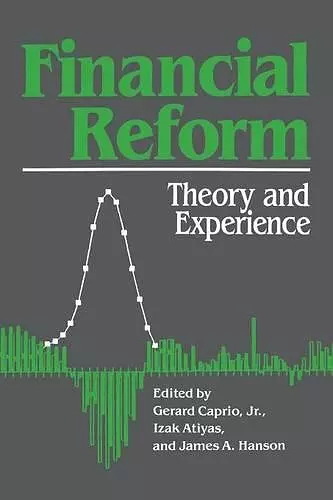Financial Reform
Theory and Experience
Gerard Caprio, Jr editor Izak Atiyas editor James A Hanson editor
Format:Paperback
Publisher:Cambridge University Press
Published:28th Aug '96
Currently unavailable, and unfortunately no date known when it will be back

This study is the first to look at the analytics of and experience with financial reform, in examples drawn mostly from the developing world.
This study is the first to look at the analytics of and experience with financial reform. It examines the relationship between the financial and real sectors, and its effect on the economy at large; the process of sequencing, including the timing of opening of the capital account; the impact of financial reforms on capital allocation efficiency.This book examines the analytical basis and practical experience of financial reforms in a number of primarily developing countries. A key finding is that financial reforms have led to improved resource allocation - an a priori belief not hitherto tested. This finding is consistent with the argument that efforts in developing countries to maximize efficiency resource utilization cannot be underestimated in their importance. There are three key lessons that suggest the crucial nature of managing the process rather than adopting a laissez-faire approach. First, more successful reform must take account of information capital; second, initial conditions in balance sheets, human and information capital, and incentive systems are fundamental in determining how to go about reform; and third, that different sequences of reforms can be tolerated and, with certain preconditions, do well.
ISBN: 9780521574242
Dimensions: 227mm x 152mm x 32mm
Weight: 664g
494 pages